The Role of Expectation Damages in Contract Law: LLB Assignment
VerifiedAdded on 2023/06/06
|6
|1438
|462
Essay
AI Summary
This LLB law assignment delves into the critical area of expectation damages within contract law, focusing on whether courts should award such damages in cases of contract breach. The research explores the significance of expectation damages, particularly when there is a loss of profit due to a breach, and examines the complexities of determining appropriate compensation. The essay references key cases such as Addis v Gramophone Co Ltd and Robinson v Harman, highlighting the challenges courts face in assessing damages, especially when the expected profit significantly outweighs the initial contract value. The research emphasizes the importance of understanding the different measures of damages, including expectation, reliance, and restitution, and analyzes how expectation damages aim to restore the aggrieved party to the position they would have been in had the contract been fulfilled. The essay also discusses guidelines such as the duty to mitigate, reasonable certainty, and foreseeability of damages, offering a comprehensive analysis of the subject. The assignment aims to identify potential injustices in the current system and provide guidance to parties affected by contract breaches, with the goal of clarifying the rules courts should follow in determining expectation damages. The document includes references to relevant journal articles and cases to support its arguments.
1 out of 6
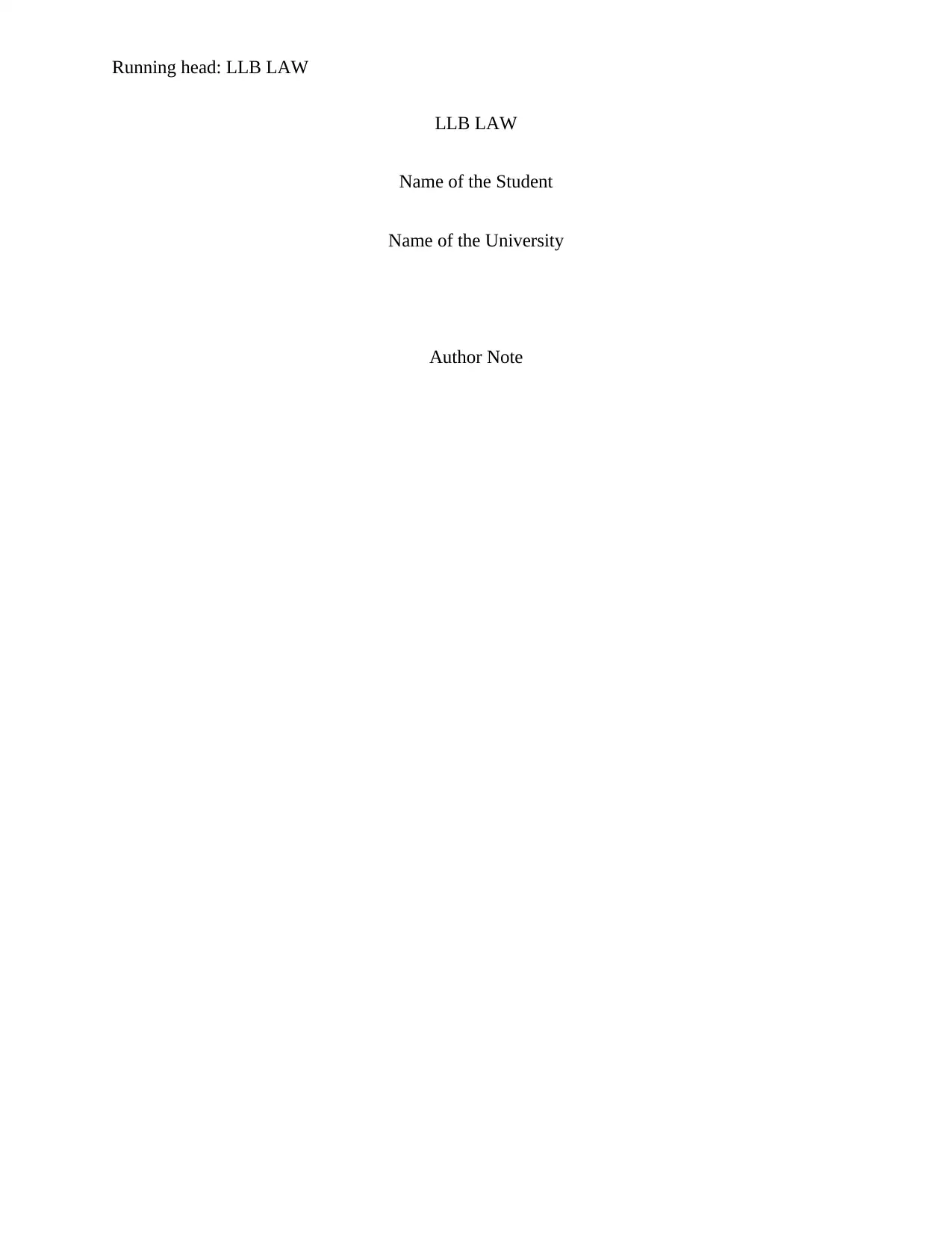
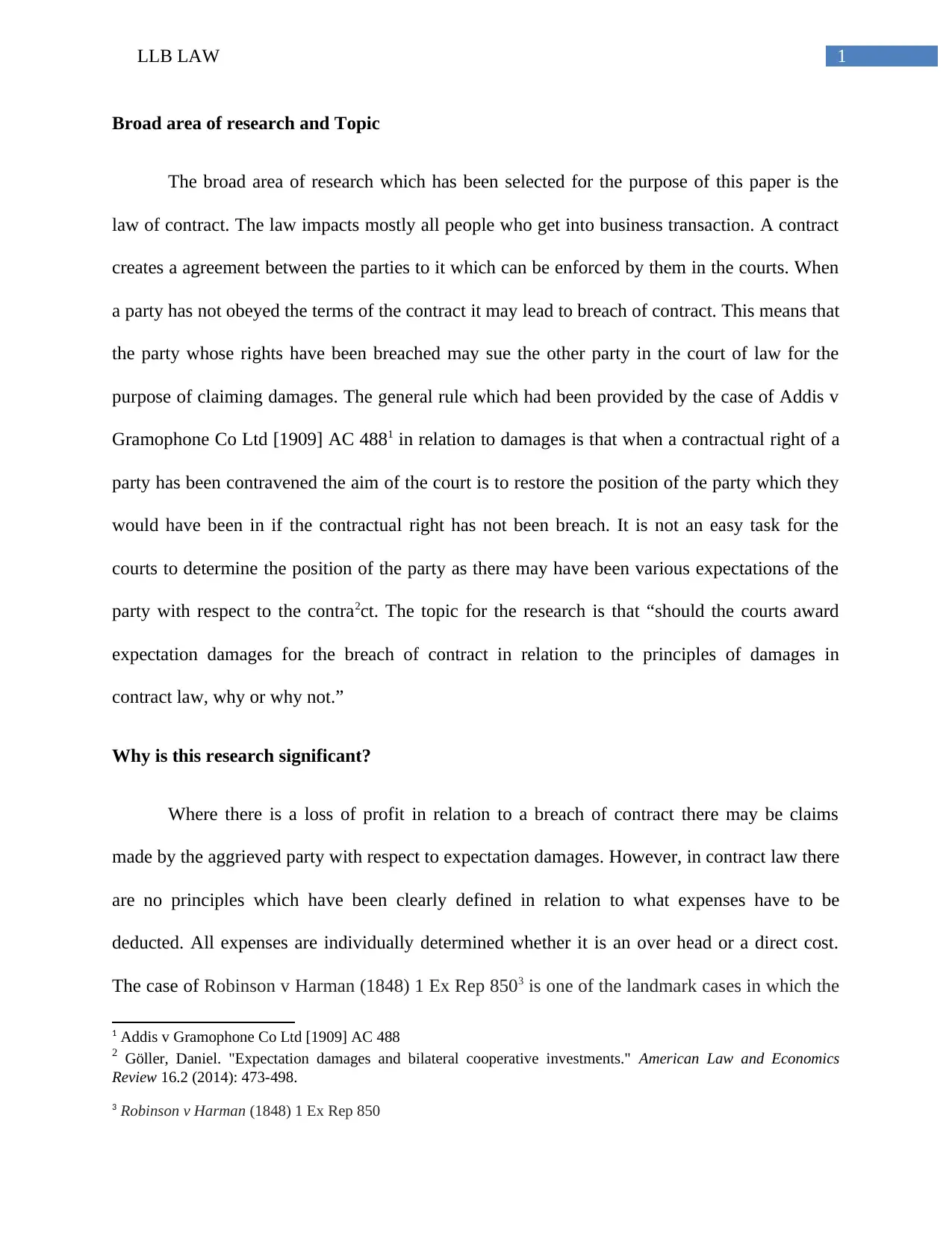
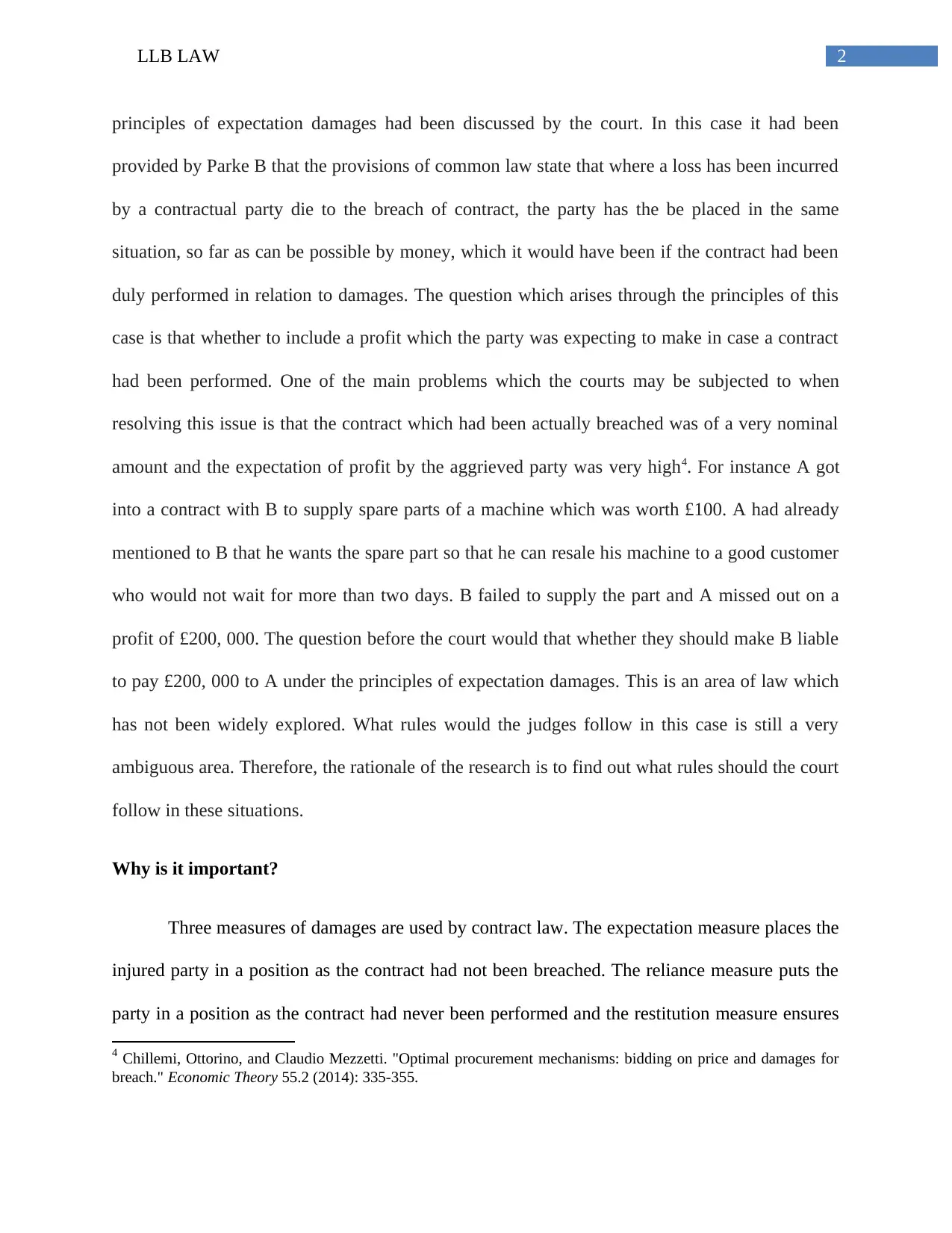

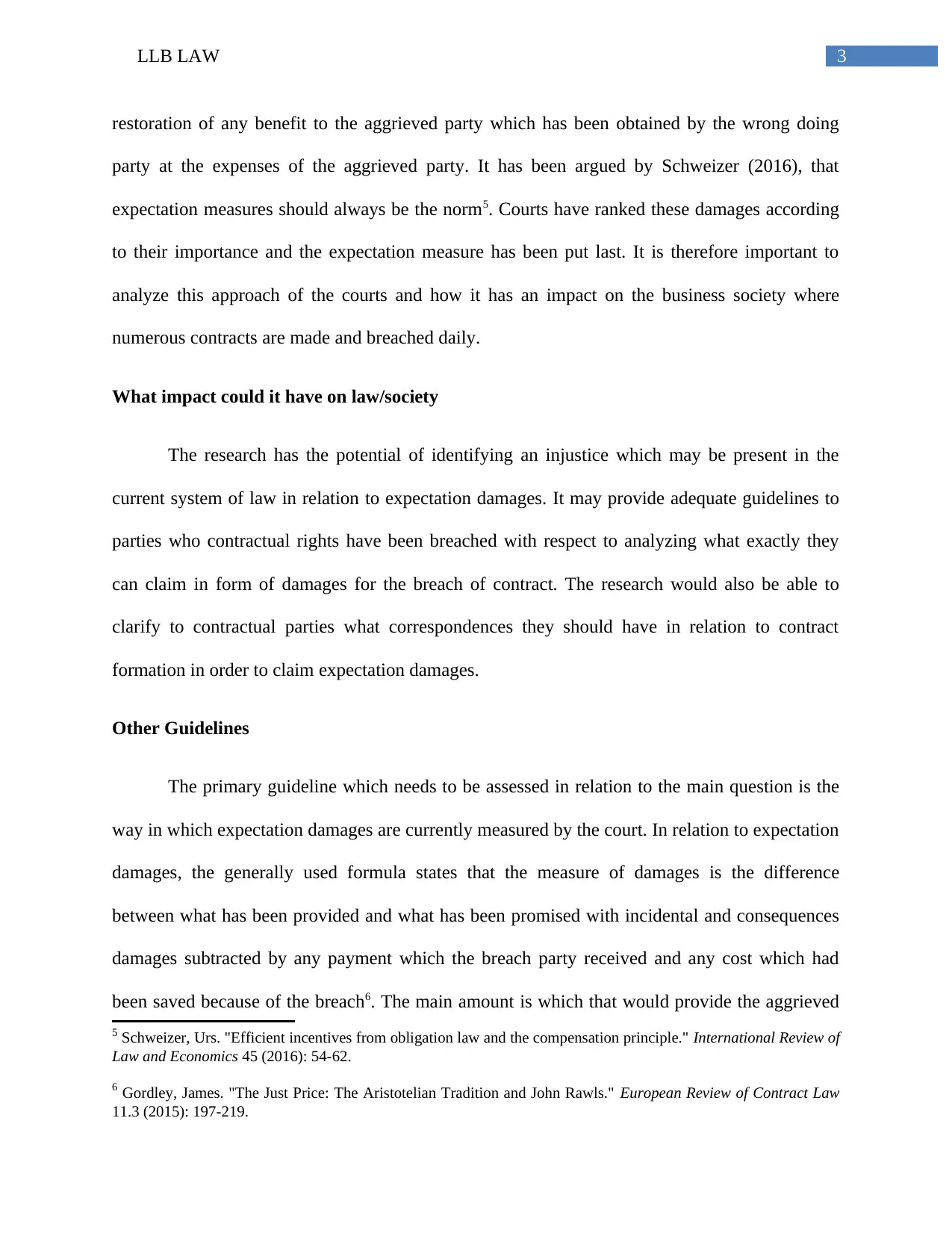
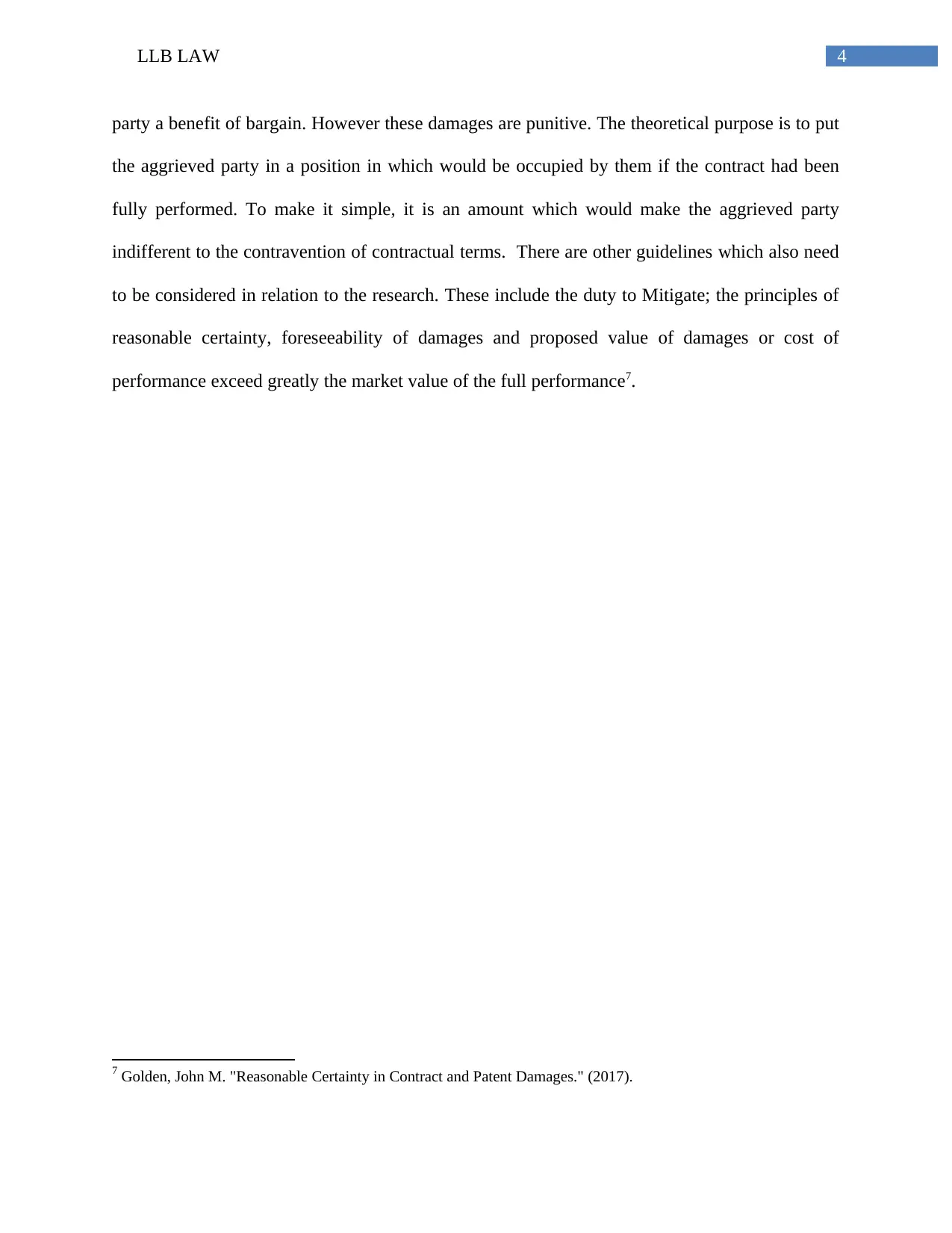
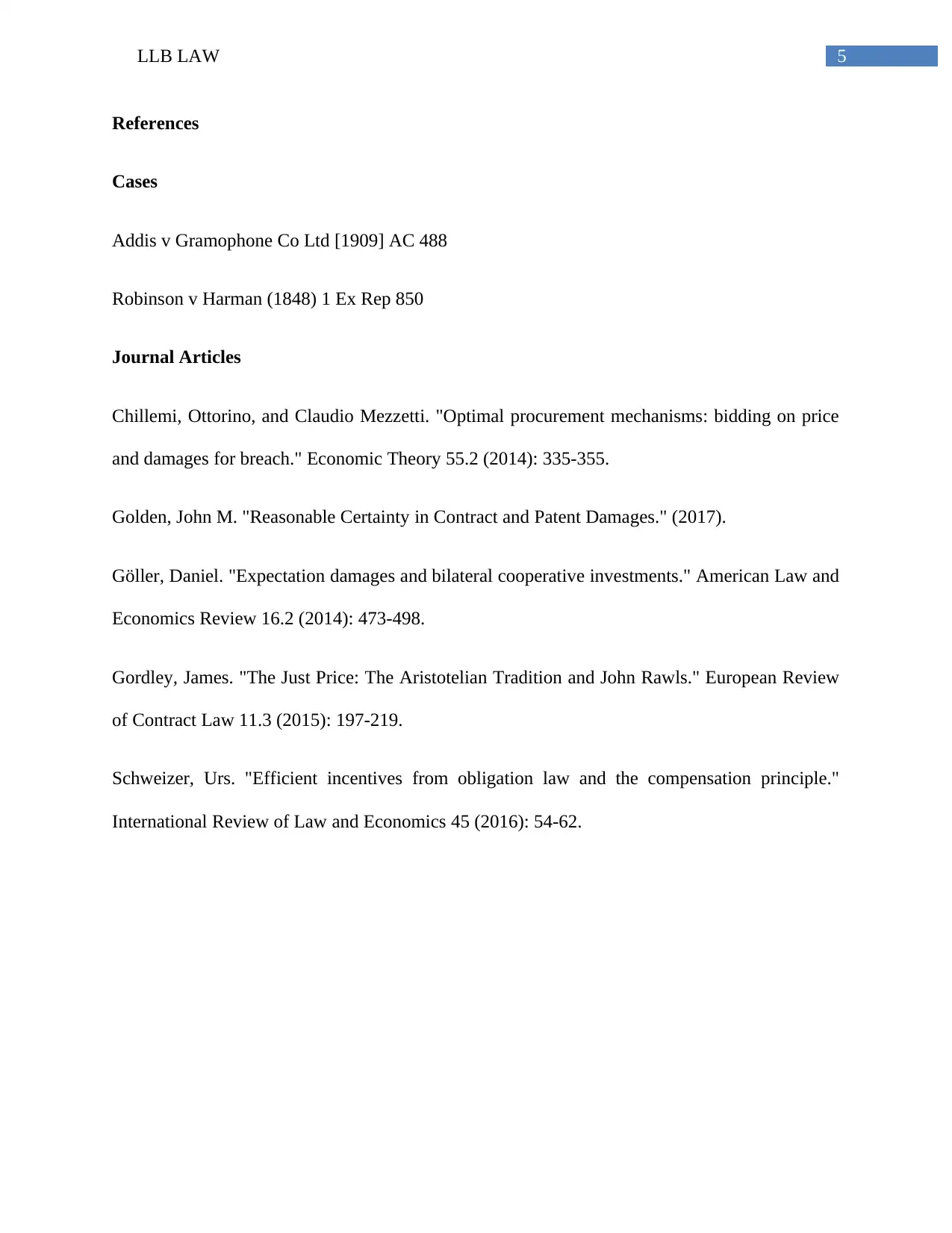





![[object Object]](/_next/static/media/star-bottom.7253800d.svg)